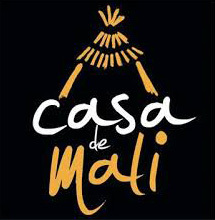AGRICULTURAL DEVELOPMENT
Agriculture
Agriculture is the base of the economy in Mali, representing 41% of their GDP. In Mali, gardens are shared by the entire town and operated by the women. Their products are the livelihood of the families and the source of their food. Furthermore, the garden is also a source of resources, since women can sell a portion of their products in the markets. The management of resources done by women represents a strategy in food security, and plays an important role in the family economy and sustainability.
The “Women’s Garden” project is being carried out in collaboration with Geologist Without Borders and has been financed among others including: Complutense University Madrid, St. Coloma Town Hall, The Barceló Foundation, The Luís Lines Foundation and the Natura 2019 prize.
Women’s Garden in Djélibani
The existing garden doesn’t currently provide the entire Djélibani village. Siby has extended approximately 500m2 and has cultivated different vegetables and greens depending on the seeds they have access to.
Planned Actions:
- The garden’s surface area will be expanded to 10,000m2, with the end goal of producing a large variety and quantity, enough for the inhabitants to consume and allows for a surplus that women can commercialize off of in local markets.
- We’ll proceed to fence the garden with a strong metal mesh inclosure.
- It is foreseen that a new water well will be constructed for water supply.
- With the end goal of providing water pressure to carry out irrigation, possibly with drop by drop tubes, an elevated deposit of 5000L will be constructed, and will be powered by a solar pump.
- A small building will be constructed with the end goal of being able to store the diverse products needed, tools, etc.
Women’s Garden in Bamako
The project has had a direct impact on the local development and creating riches through income generations. The project involves a water well and a water deposit of 5,000L with a distribution system of water distributed through faucets. The garden cultivates during the seasons with no rain and the harvest is collected during the other months. Some products that are harvested are: carrots, eggplants, peppers, onions, cabbages, lettuce, etc.
In this project, 60 women receive bio compost training to be able to improve their vegetable and green production.
